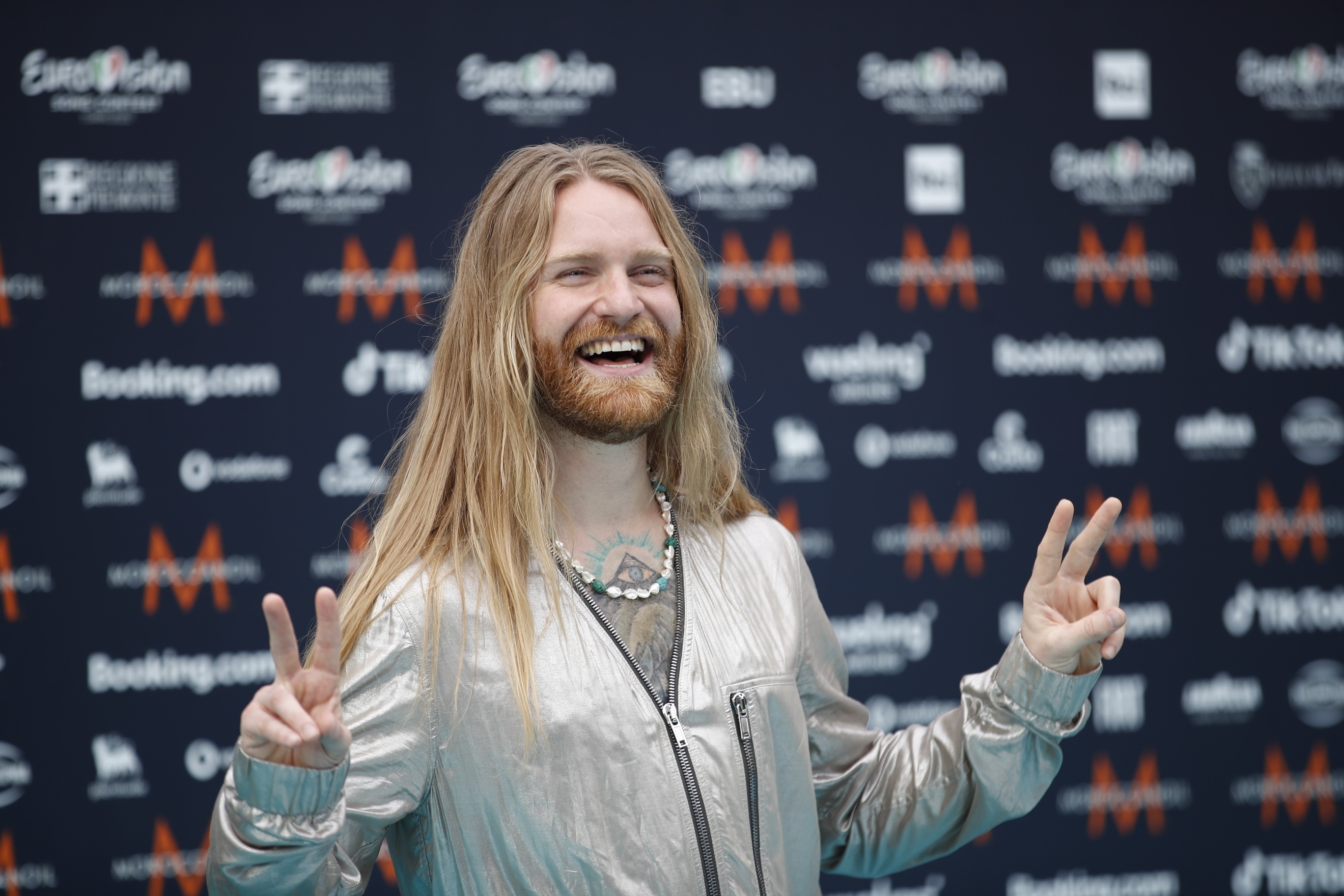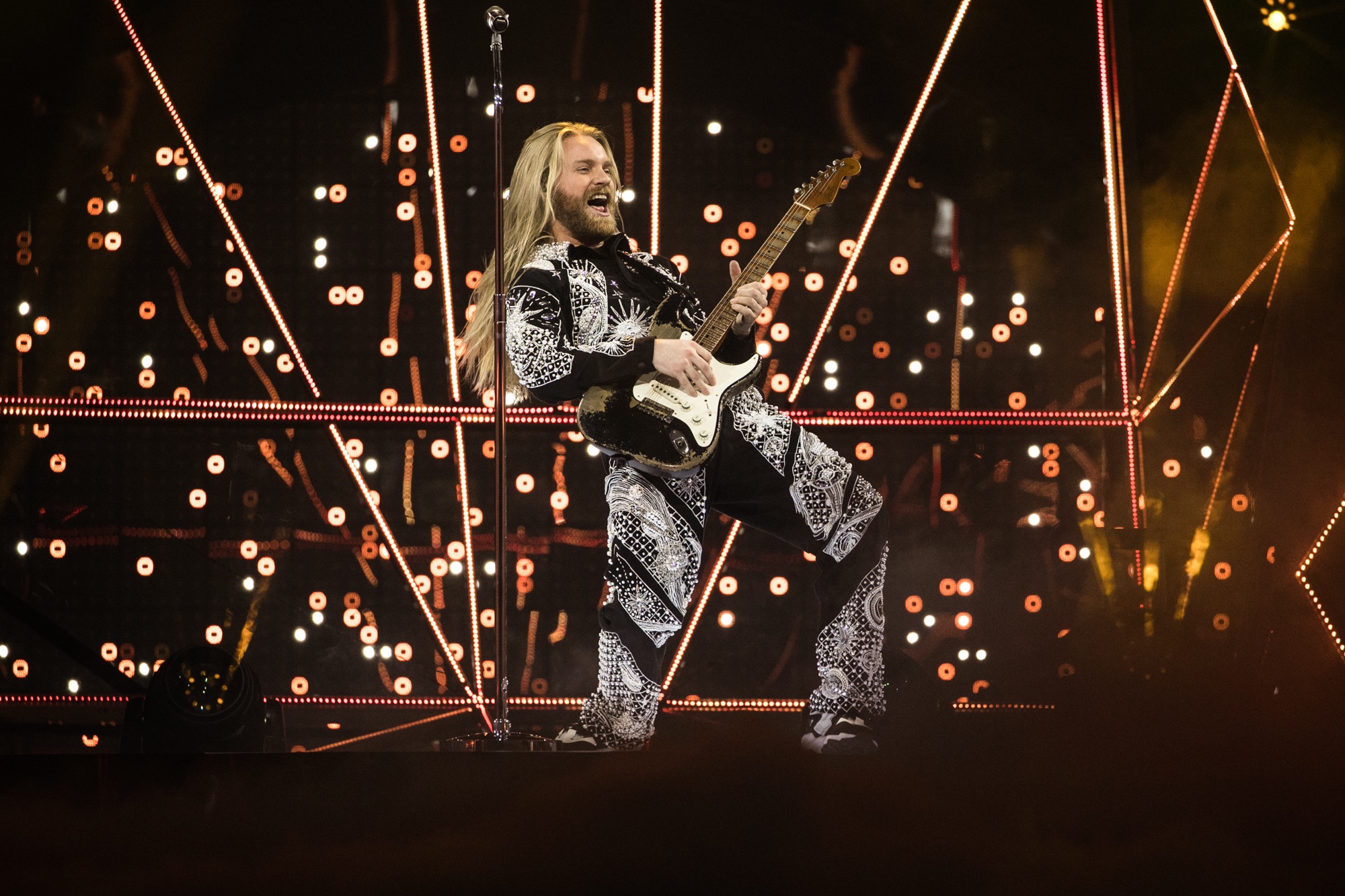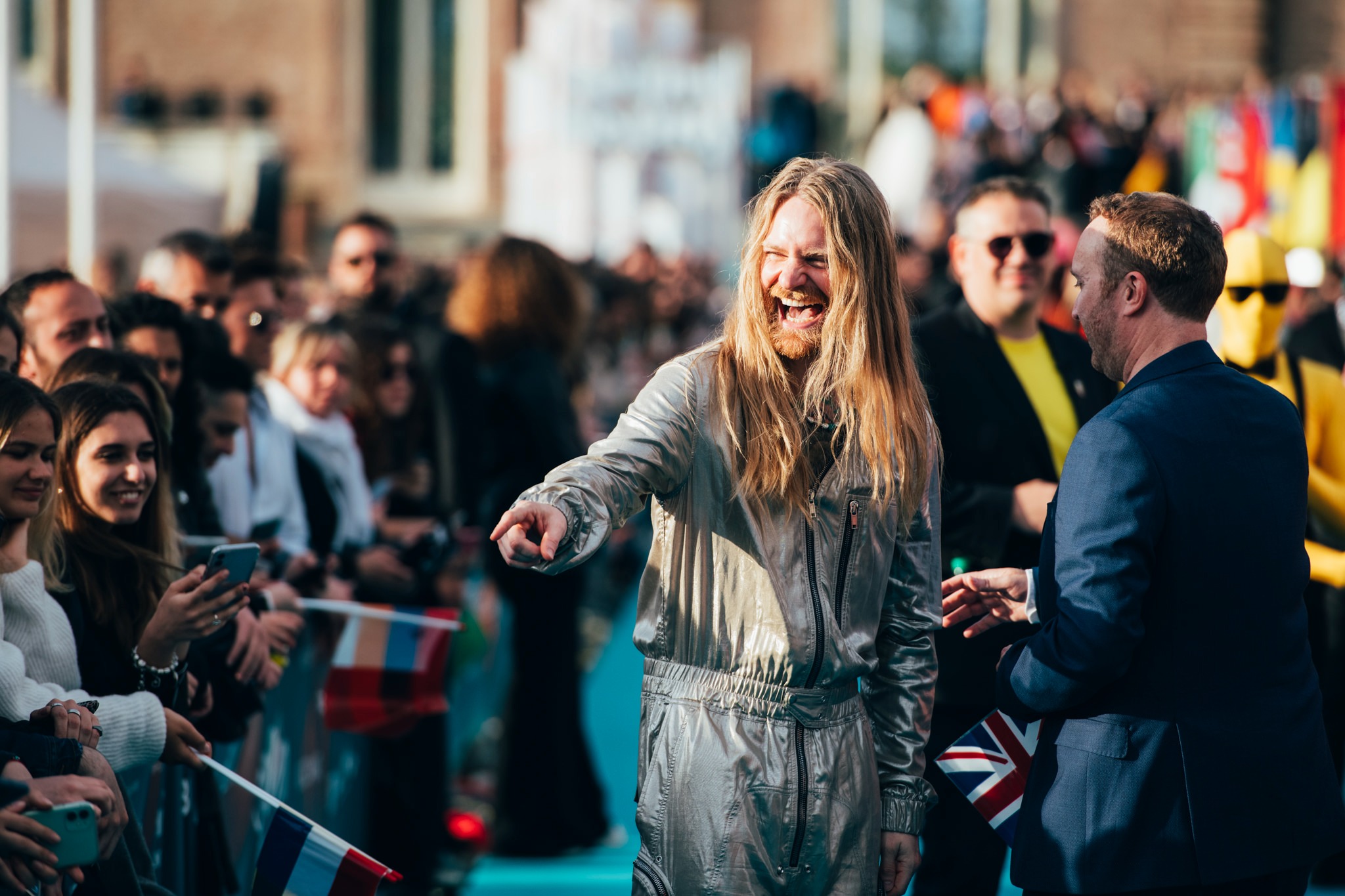Eurovision’s Sam Ryder: ‘We all have the power to flip the UK’s narrative’
The UK’s Eurovision Song Contest entrant talks pressure, staging his song 'Space Man', and why it’s high time we accept that Europe doesn't hate us.
By Will Stroude

Words: Matt Baker; Image: The EBU / Eurovision.tv
For too long the conversation around the UK at the Eurovision Song Contest has only ever focused on what’s going wrong and the negative aspects of participation. The UK hasn’t won the contest since Katrina and the Waves sang ‘Love Shine a Light’ in 1997 and that quarter of a century hasn’t been the smoothest of rides.
But just as the UK media was dusting off its annual “We’ll never win, Europe hates us” standard headline, Sam Ryder has suddenly emerged and flipped the story on its head. Now, the conversation about the UK at Eurovision is around being contenders. And Sam Ryder – whose song ‘Space Man’ is riding high in the bookies’ odds – wants everyone onboard…

The Eurovision circus has arrived in Turin, how are you finding all the pomp and ceremony?
It’s so amazing to see it first hand like a fan. You get to experience it in a way you’ve never before, but you’ve got to be careful because you can get swept up, like you said, in that circus. It’s an assault on the senses in the best possible way but you’ve got to be careful as a singer to make sure you get that rest and retain some of that focus. You can easily lose your way or sketch yourself out, you know?
It’s great to talk to the UK’s act but it’s even better when that act is a contender. Are you feeling the pressure and what are your coping mechanisms?
Firstly, by not putting pressure or value into where we are on the scoreboard or betting odds. These are just numbers, right? And while they are incredibly flattering and show a wave of support, which is so amazing and I’m so thankful for, at the same time I was happy before singing into my phone in a room with no one in it.
Singing is the reason and singing brings me joy. I’m trying to keep that focus. The Eurovision Song Contest offers an amazing opportunity to be a part of something and not the focus of trying to get somewhere or use it as currency to bet on myself. It’s just amazing to be part of the story with everyone else.
You’ve said that your song ‘Space Man’ was written in fifteen minutes. What was the creative process?
The process was amazing. The dream is going into a studio to write a song with people, and it feel effortless. A good song will feel like its got nothing to do with you at all. You don’t feel tired after, or like you’ve just done along day at work, the song just comes and you’re lucky to be there at the right time to catch it.
All you have to do to write a good song is to get out of the way of it. You’re there as a conduit for the song.

Image: EBU; Corinne Cumming
At Eurovision, how a song is staged is just as important as the song itself. How much input did you have in the design?
We all worked on it together from day one. I told the team I was a massive sci-fi nerd and I wanted something that was very Ridley Scott-esque. It was amazing how the whole team came together and was being super open and trusting of some guy who’s been singing in a shed.
It’s been so cool seeing everything come to life. You rarely get an opportunity like this to dig in fully into creating a staged set like this at Eurovision.
You’ve already had to handle some cynical UK media telling you that you do not stand a chance because Europe hates us. Explain why they’re wrong.
Even just saying it out loud then, it’s almost laughable. When you say it and you’re out of the UK, if you have the experience of visiting these countries and having conversations with people, you’ll find nothing but kindness, warmth, and a welcoming attitude.

Image: EBU; Sarah Louise Bennett
I refuse to subscribe to that narrative, that negative perpetuating narrative that we loop in our brains and inject into our small talk, just like we do when moaning about the weather. Believe me, I’m not trying to make a volatile statement by saying this. There are people back home that have subscribed to this negative narrative that are gorgeous, lovely, kind, empathetic people, but it’s hard to ignore negativity in our lives. All of us get swept up in it sometimes and subscribe to these non-stories and non-truths.
But we all have the power to flip the Eurovision narrative and flip the story. I just think living your life in a way that you don’t accept those negativities is such a nicer way to live.
The Eurovision Song Contest’s second semi-final airs Thursday 12 May at 8pm on BBC Three. The Grand Final airs on Saturday 14 May at 8pm on BBC One.
